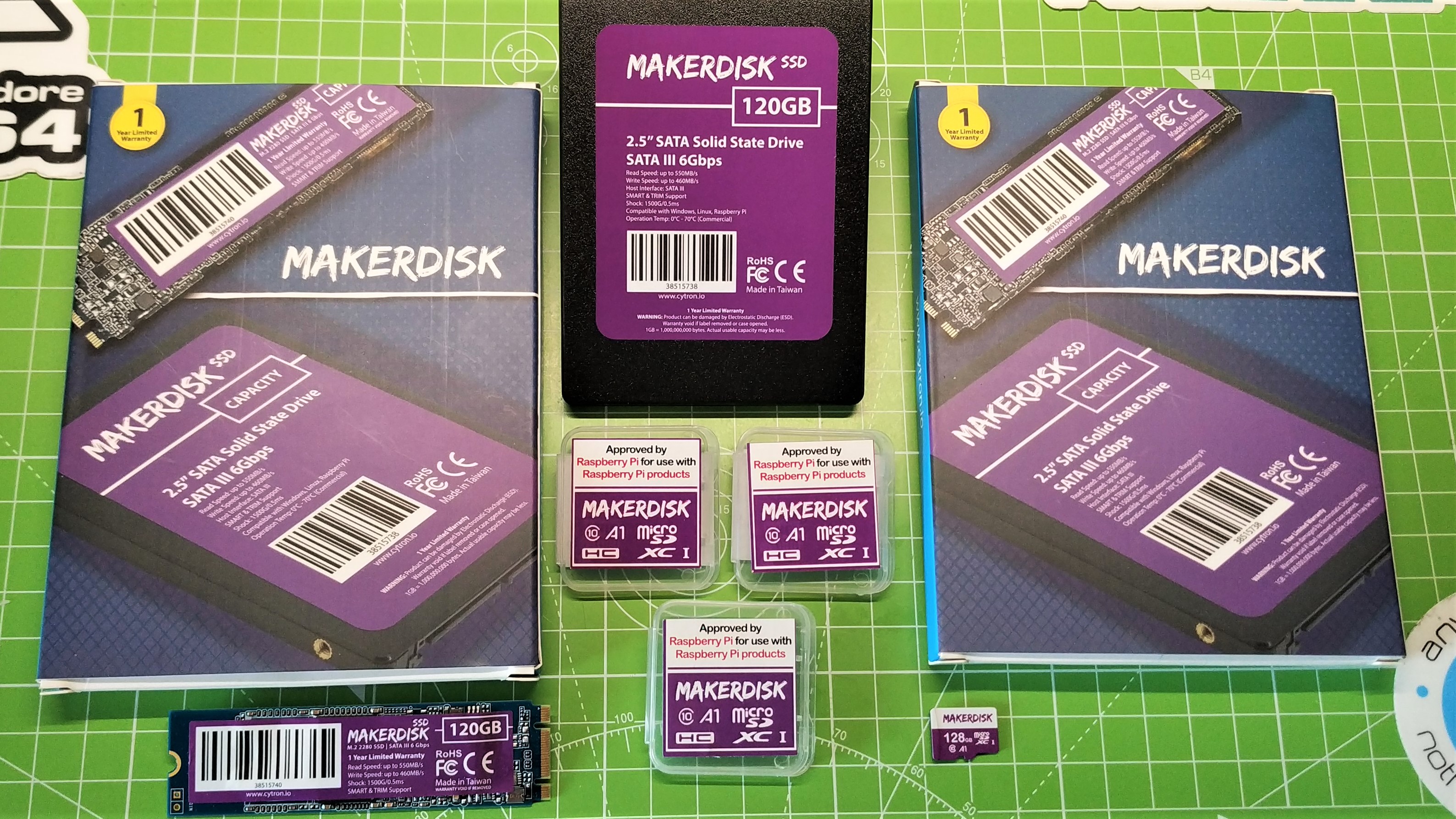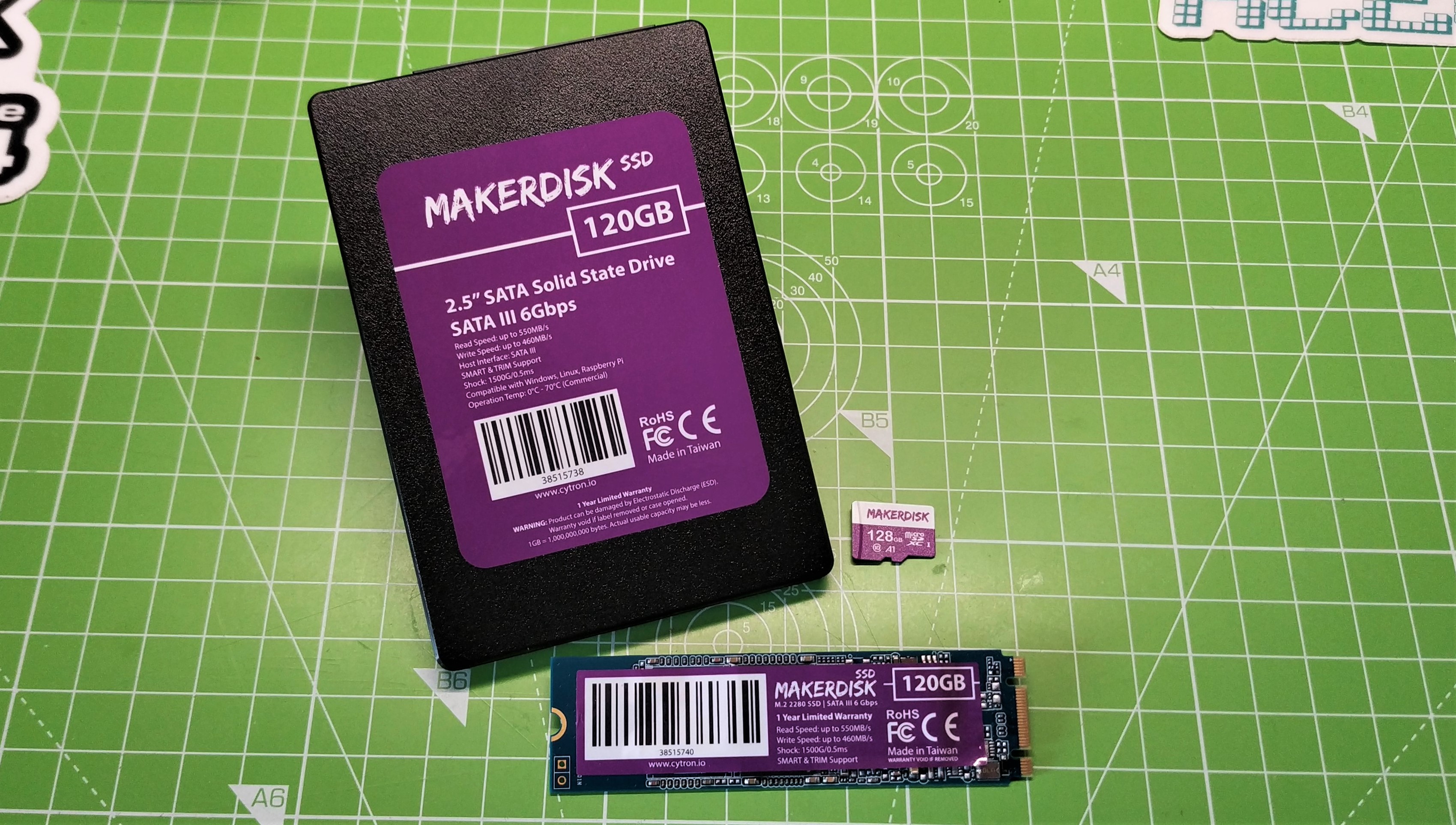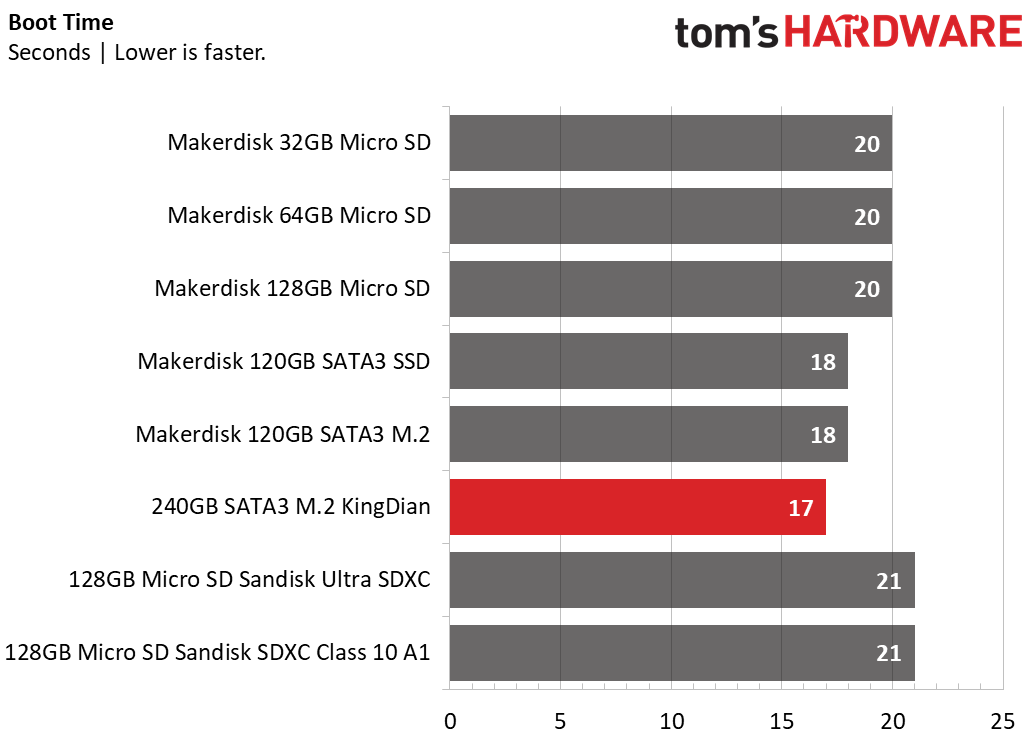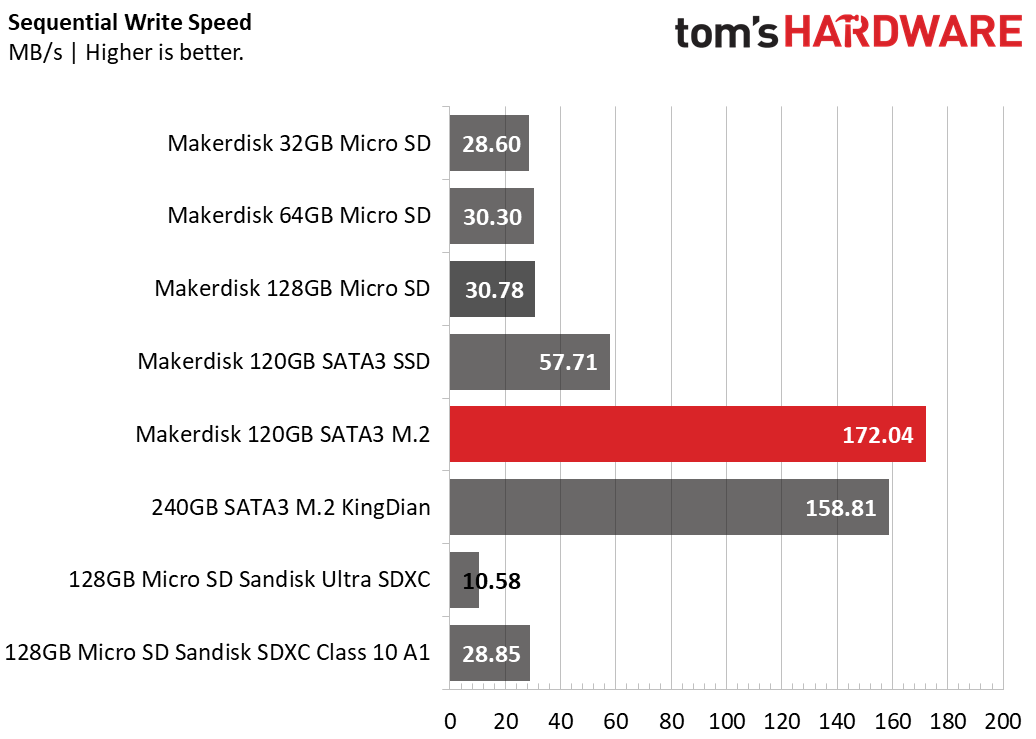Tom's Hardware Verdict
We pay a slight premium for convenience but we can have our Raspberry Pi up and running with minimal effort.
Pros
- +
+ Cost-effective
- +
+ Raspberry Pi OS preloaded
- +
+ SSD Speeds are great
Cons
- -
Other media brands offer similar speeds
Why you can trust Tom's Hardware
Think Raspberry Pi and you’ll likely think of microSD cards. Since the Raspberry Pi 1 arrived in 2012 until the present day, every model of Raspberry Pi has booted from a form of SD / microSD card. The reason is simple: they are cheap and plentiful. Nearly every home has an SD card, and if you are a Raspberry Pi fan or maker you are sure to have a stash of cards ready for use.
The downsides of microSD cards are that they are easy to lose, easy to damage and over time they develop errors which can lead to data loss. But the biggest downside is speed. You need to buy a good quality SD card to guarantee good speeds, and even then the best microSD cards can be a bit underwhelming.
MakerDisk is a new range of microSD cards and SSDs from Cytron, designed and approved for use with all models of Raspberry Pi. Yes these cards / drives have been approved by the Raspberry Pi Foundation as fit for use with its range of boards. Essentially this means that the cards pass the Raspberry Pi OS diagnostic tool tests, something we shall be using to test each of the units we have on the bench.
Each microSD card and SSD comes pre-loaded with Raspberry Pi OS. We saw a kernel 5.10.17-v7l+ from February 2021 on our review units, so as a rule of thumb you will need to update your software to ensure you have the latest packages.
The MakerDisk Range
The range starts with an $11 32GB microSD card and if you need a little extra storage there are also $15 64GB and $30 128GB cards. The sweet spot for price versus capacity seems to be the $15 64GB microSD as $4 for double the capacity is a no-brainer.
Looking at the SSDs we have two choices, a traditional 2.5 inch SATA 6 Gbps SSD available in 120GB capacity for $31. Or we can opt for an M.2 2280 SATA SSD in 120GB ($33) or 240GB ($49.75). For our tests we had the 32, 64 and 128GB microSD cards, a 120GB 2.5 inch SSD, and 120GB M.2 2280 SSD. We also dug around in our box of bits and found two SanDisk 128GB microSD cards, including one that matched the specifications of MakerDisk. We also found a 240GB M.2 SATA 3 SSD which we used to compare against MakerDisk. All of the tests were conducted on a Raspberry Pi 4 4GB.
Are MakerDisks Faster to Boot?
The short answer is that the MakerDisk microSD cards make no significant difference to boot times, but the SSDs shorten out boots by a few seconds at most, as we would expect for any model of SSD. Comparing the MakerDisk microSD cards to conventional microSD cards, we see a fractional increase in boot speed.
Get Tom's Hardware's best news and in-depth reviews, straight to your inbox.
We used our Sandisk Ultra SDXC Class 10 card as the target to beat. This card takes 21 seconds to boot, all of the MakerDisk microSD cards took 20 seconds to boot. Not a great improvement, but every little helps. The final microSD card we tested was a Sandisk Ultra SDXC Class 10 A1 card, rated for up to 120 MB/s and our boot time, 21 seconds, matched that of our other SDXC card. Our SSD tests saw sub 20 seconds boot times for all. The 120GB, 2.5 inch SATA and 120GB SATA M.2 drives both took 18 seconds to boot, saving us 2 seconds in boot time. We threw into the mix a generic KingDian 240GB SATA 3 SSD and it booted in 17 seconds. If fast boot times are top of your list, then an SSD is for you.
Testing MakerDisk Performance
To test the general performance of each piece of media we used the official Raspberry Pi Diagnostic tool, found under the Accessories menu in Raspberry Pi OS. This tool is used to compare the performance of your chosen media against the tools performance metrics. The minimum values considered a pass are a 10000 KB/s (9.77MB/s) sequential write speed, 500 IOPS random write speed, and 1500 IOPS random read speed.
First on the bench was the 32GB microSD card which returned a sequential read speed of 28.6 MB/s, almost three times faster than the 9.77MB/s set as the pass speed. The 64GB and 128GB cards fared a little faster with 30.3 and 30.78 MB/s respectively. How does these speeds compare to a typical microSD card? Our 128GB Sandisk SDXC Class 10 only managed 10.58 MB/s which just scrapes a pass but our random read and write speeds fell under the pass mark causing our card to fail the test. We then tested a brand new Sandisk Ultra 128GB microSDXC Class 10 A1 card and found that it was slightly faster than the 32GB Makerdrive, 28.85 MB/s versus 28.6 MB/s. So Cytron’s Makerdrive microSD media looks to be a good investment in terms of price versus performance.
Our tests moved on to the two SSDs and you would expect SSDs to give us a performance boost, but that is only half true. The 2.5-inch 120GB SATA 3 drive saw a sequential write speed of 57.71 MB/s. almost double that of the fastest microSD that we tested. While this boost is impressive, it pales into insignificance when we compare the performance of the 120GB M.2 SATA drive which saw a speed of 172 MB/s, three times the speed of the 2.5 inch SATA 3 drive, and 5.6 times the speed of the 128GB microSD card. So if you are looking to purchase a 128GB microSD card and the ultimate speed boost is your goal, pay the extra $3 and get yourself the M.2 drive. Sure you will need to spend an extra $10 for an external case, but that is a small price to pay for such a speed boost.
Bottom Line
MakerDisk has three things going for it: convenience, price and speed. $33 for an M.2 SATA 3 drive is not a lot of money, and the overall speed boost is most welcome. The convenience comes in having Raspberry Pi OS ready to go, and makes MakerDisk ideal for those that want to plug in and hack, or as a gift from a family member. Yes we can buy any brand of blank, high-speed media, but we still need to install Raspberry Pi OS to it. MakerDisk isn’t for everyone but those that need it will not feel short changed.

Les Pounder is an associate editor at Tom's Hardware. He is a creative technologist and for seven years has created projects to educate and inspire minds both young and old. He has worked with the Raspberry Pi Foundation to write and deliver their teacher training program "Picademy".
-
Howardohyea interesting drive, but for me, it's kind of niche. I don't use Pis that often but I'm sure these products will appeal to certain people.Reply
Would be fun if Sean Webster reviewed it, just saying, don't actually do that.



